7 Cold Plunge Benefits for Your Health

If you’re thinking about joining the Polar Bear Club by taking a cold plunge, you might be in for a real shock. That is to say that your body will experience a surprising level of physical stress, resulting in a range of physiological changes—potentially good and bad. Experts explain that there are both risks and benefits to submerging yourself under icy cold water and that it’s important to weigh these with the help of your doctor—not just the growing chorus of social media influencers who swear by the practice. Read on to learn the seven biggest potential cold plunge benefits, as well as the very real risks that might make you reconsider.
RELATED: 10 Best Foods for Joint Health, According to Doctors.
What Is a Cold Plunge?
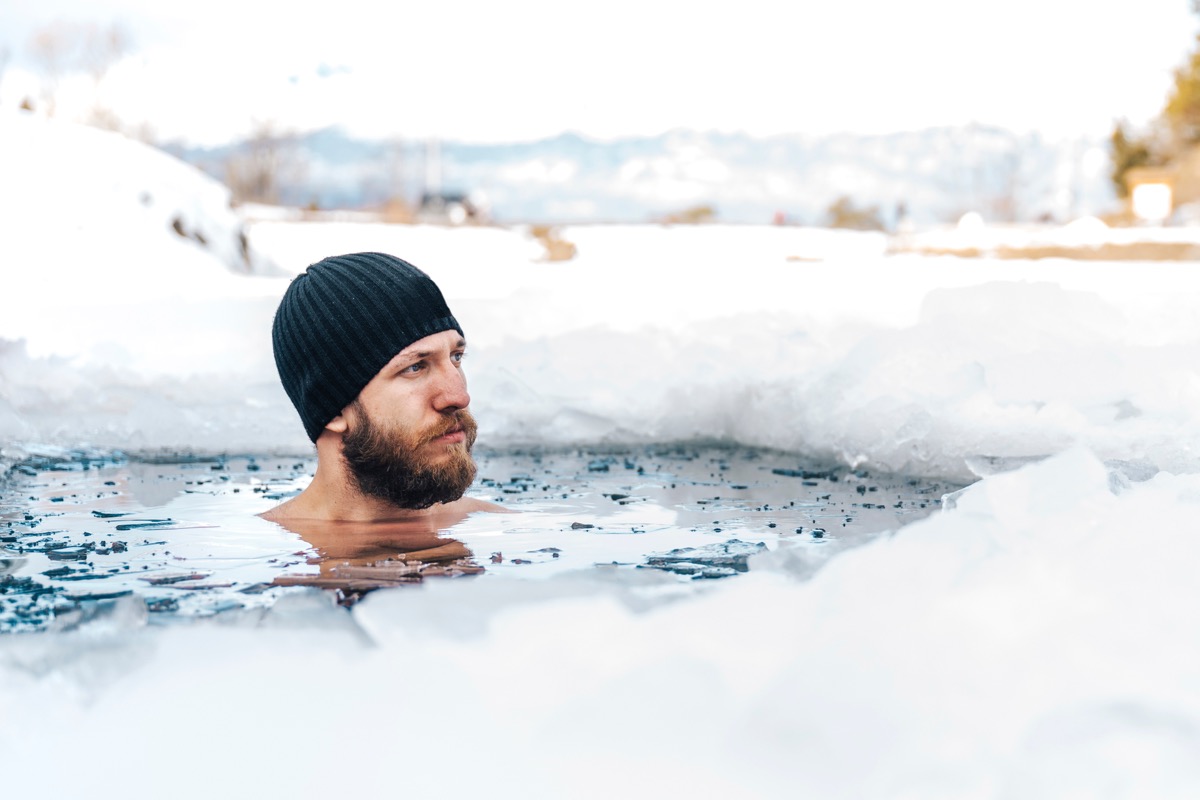
A cold plunge is when you immerse your body in water that is between 50 and 59 degrees Fahrenheit for a short period of time. Some people believe that this concentrated exposure to extreme temperatures is beneficial to your physical and mental health.
“This old practice, born from ancient rituals, is meant to physically send a controlled shock to the body, providing many health benefits,” explains Patrick McClure, a health expert and co-founder of WINIT Clinic. He notes that you can try cold plunges in a range of different environments, including specially designed pools or ice baths, natural bodies of water at cold temperatures, or your bath or shower at home.
How Long Should a Cold Plunge Last?
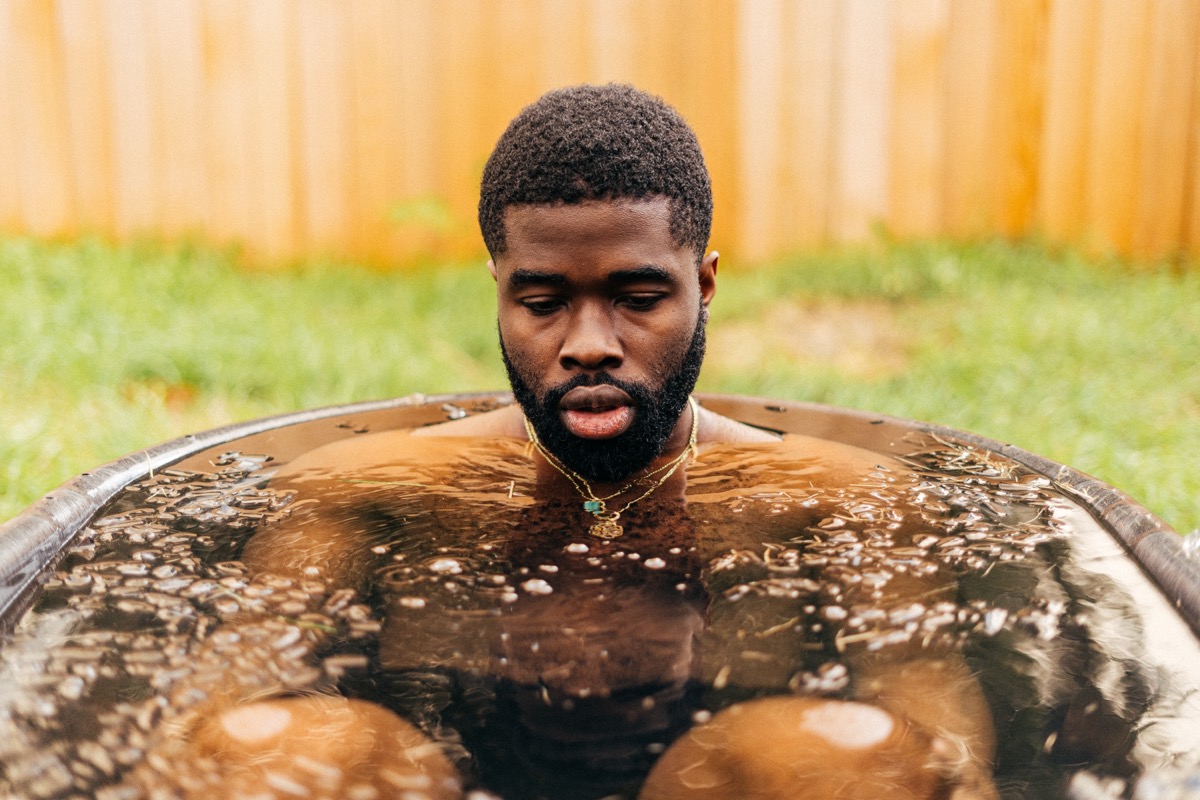
McClure says the total duration for a cold plunge depends on the individual’s tolerance and experience—but those who are just starting out can begin with one- to two-minute plunges and build from there as the body adapts.
More advanced cold plungers can spend up to 10 minutes immersed in cold water, McClure notes, though many people will find that their threshold is far lower. “It’s pivotal to pay attention to one’s body and not to go beyond the limit,” he warns.
RELATED: 5 Apple Cider Vinegar Benefits, According to Doctors.
Cold Plunge Benefits
Though cold plunges are widely believed to offer health benefits, it’s important to note that much of the research supporting these claims includes smaller studies, and these tend to focus on young men who are in relatively good health. More research is needed to determine how cold water therapy affects health in the general population.
1. Improved Circulation

One of the biggest supposed benefits of cold plunges is that they may be able to improve poor circulation.
“Cold plunges stimulate blood flow through the constriction of blood vessels, working to pump oxygenated blood to the vital organs,” explains McClure. “When you get out of the cold water, your body works to warm up by dilating the blood vessels, thus increasing circulation. That could be very useful in improving cardiovascular health and generally enhancing one’s energy levels.”
2. Improved Muscle Recovery

Cold water immersion can also help reduce inflammation and improve muscle soreness, resulting in better recovery after exercise, says Tom Ingegno, DACM, MSOM, LAc, a doctor of acupuncture and Chinese medicine and the founder of Charm City Integrative Health in Baltimore, Maryland.
“I’ve found it particularly effective for bouncing back quickly after tough workouts or competitions,” he tells Best Life.
McClure adds that one reason cold plunges are beneficial to muscle recovery is because they provide “anti-swelling benefits and actually numb nerve endings, which can help in diminishing pain and soreness.” He agrees that this makes cold plunges “an excellent recovery tool for people involved in any regular physical activity.”
3. Enhanced Mood and Mental Clarity

Some people do cold plunges not only for the physical benefits but also for the mental benefits.
“The shock of cold water triggers a release of endorphins and norepinephrine, leading to improved mood and alertness. Many of my clients report feeling more focused and energized after a plunge,” says Ingegno.
4. Increased Brown Fat Activation

You may also see some changes on the scale once you begin regularly doing cold plunges, Ingegno says.
“Cold exposure activates brown adipose tissue, which can help improve metabolism and aid in weight management,” the holistic health expert says. “This benefit has been particularly interesting to observe over my years of practice.”
5. Better Sleep Quality

Ingegno notes that though it may seem counterintuitive given the shock a cold plunge delivers to the nervous system, taking a cold dip can also result in better sleep.
“The post-plunge relaxation response often leads to deeper, more restorative sleep. I often recommend evening plunges to clients struggling with insomnia,” he says.
6. Immune System Improvements

Some studies suggest that cold plunges may result in a stronger immune system, making your body better able to fight off viral diseases like colds and flu. In particular, experts believe it may stimulate white blood cells, which aid in fighting infections.
However, it’s important to note that the studies performed on this subject have used small subject pools and have measured biomarkers to extrapolate benefits. More research is needed to confirm real-world effects on one’s likelihood of becoming ill.
7. Reduced Insulin Resistance

Some studies also suggest that cold water therapy may help reduce insulin resistance, offering potential benefits for those with Type 2 diabetes or anyone seeking to control their blood sugar levels.
“Cold water immersion seems to reduce and/or transform body adipose tissue, as well as reduce insulin resistance and improve insulin sensitivity,” says a 2021 study published in the International Journal of Circumpolar Health. “This may have a protective effect against cardiovascular disease, obesity, and other metabolic diseases and could have prophylactic health effects.”
RELATED: 5 Best Light Therapy Lamps That Can Improve Your Mood.
Are There Any Risks Associated With Cold Plunges?
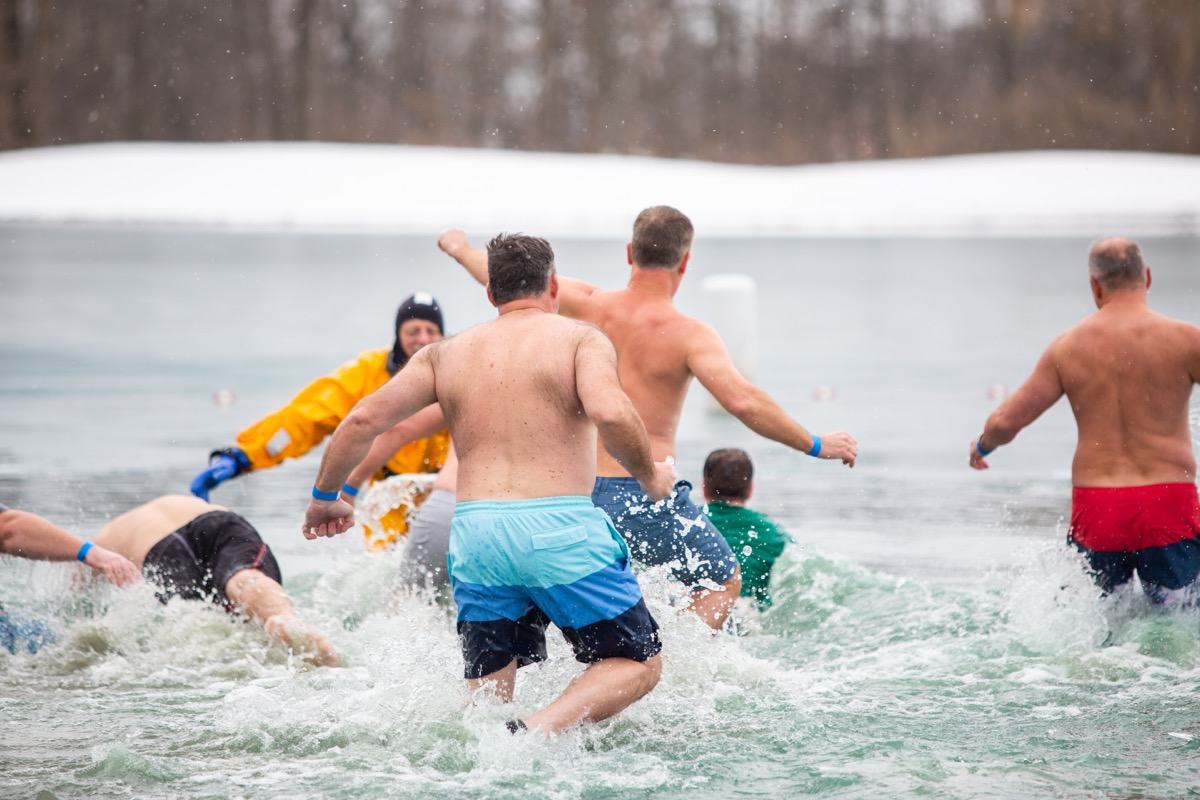
While cold plunges may come with benefits, they also come with risks—especially if you happen to have certain underlying health conditions.
“Plunging the body into cold water triggers a sudden, rapid increase in breathing, heart rate, and blood pressure known as the cold shock response,” writes the American Heart Association (AHA). “That can cause a person to drown within seconds if they involuntarily gasp while their head is submerged. The shock also places stress on the heart and makes it work harder.”
Their experts add that the cold water leaves the arms and legs without proper circulation, which can make it more difficult to swim.
“Furthermore, there is a risk of hypothermia if someone stays in water for too long,” notes McClure. It’s important to remember that being immersed in cold water triggers hypothermia much faster than cold air, so you may be taken by surprise by its effects.
RELATED: 7 Ways Breathwork Can Ease Stress and Improve Your Health.
Cold Plunge Tips for Beginners
Start Slow
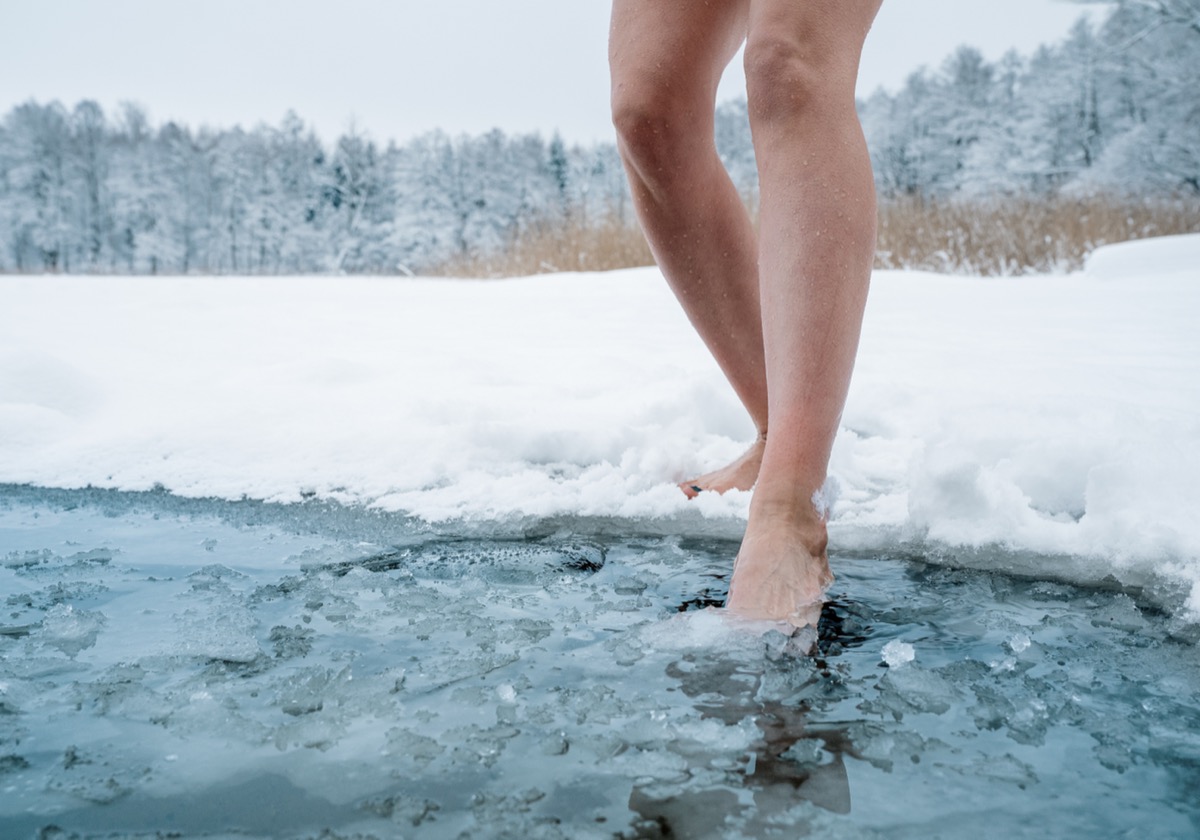
Easing into your cold plunge can help you reduce the risk of sending your system into a sudden state of shock.
“Begin with shorter durations and slightly warmer temperatures, gradually working your way up to colder and longer sessions,” says Ingegno. “This approach helps your body adapt.”
It’s also a good idea to ease into the water rather than submerging yourself suddenly by jumping in.
Warm Up Gradually
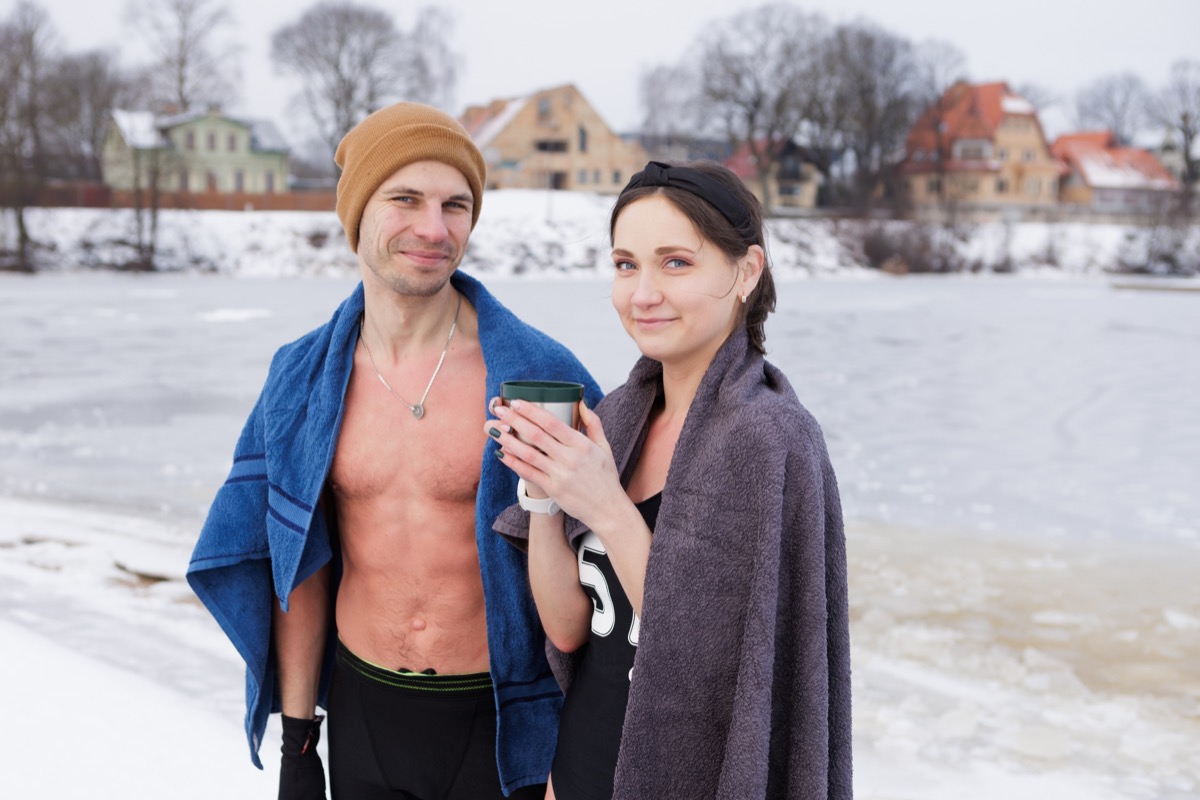
What you do after your cold plunge can also affect how your body reacts.
“After the plunge, warm up gradually by wrapping yourself in a towel or robe. Do not jump into a hot shower immediately after you get out of the cold water since this can harm your cardiovascular system,” advises McClure. “Give your body time to slowly come back to its normal temperature.”
Listen to Your Body
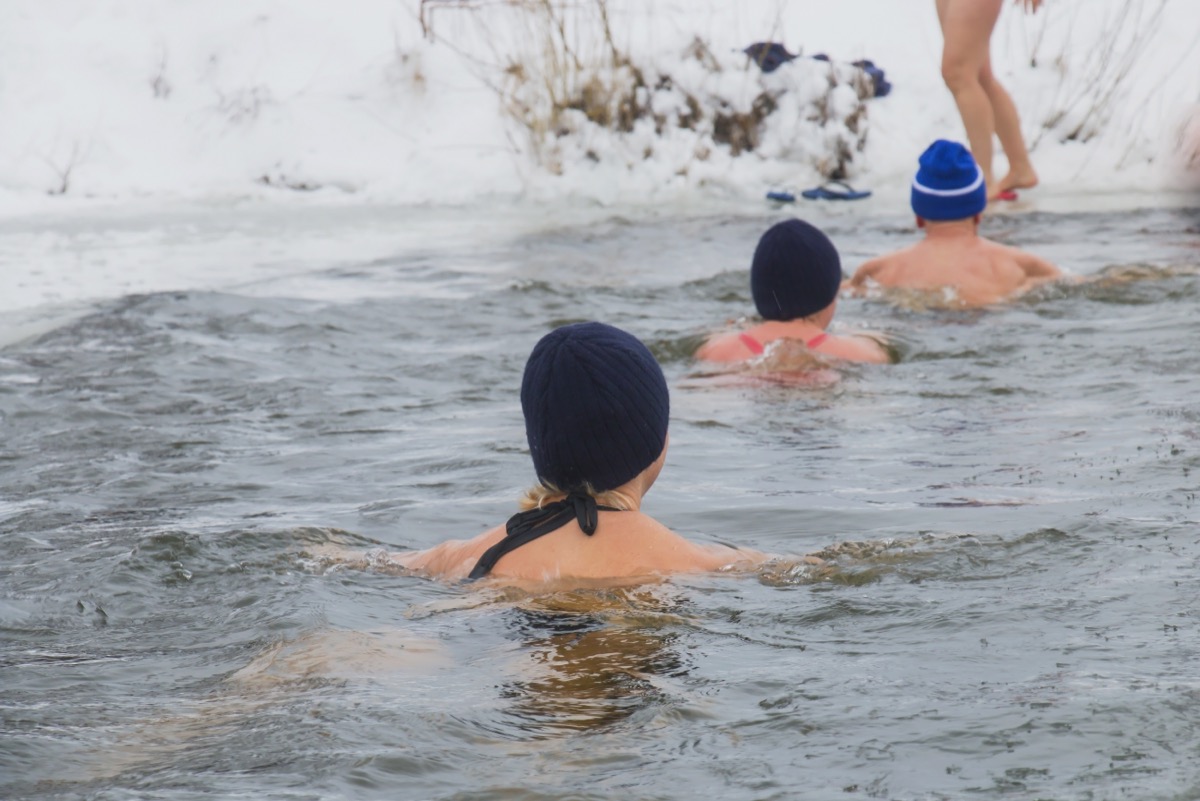
It’s also crucial to listen to your body and end your cold plunge if you feel unwell. Though this advice applies to everyone, Cheryl Groskopf, a dual-licensed therapist in Los Angeles with a focus on holistic wellness, says that women should be especially mindful of how their tolerance might fluctuate with hormonal changes.
“Pay attention to how different phases of your menstrual cycle affect your experience. Some women might find cold plunging more challenging during their luteal phase (the week before menstruation) when the body is naturally warmer and more sensitive,” she tells Best Life.
Common Mistakes to Avoid During a Cold Plunge
Plunging Alone
Because cold plunging in icy water can pose a risk of drowning, hypothermia, and acute cardiovascular events, it’s important to never plunge alone. Always use a buddy system to ensure your safety.
Not Consulting a Doctor First
Like anything else that affects your health, it’s a good idea to weigh the risks and benefits of cold plunging with your doctor—before you try it. Not doing so may result in serious health complications.
Forgetting to Breathe
Forgetting to breathe purposefully can also result in poorer outcomes, including lower endurance against the cold and a higher risk of a dangerous physical reaction.
“Practice deep, steady breathing while in the cold water. Inhale deeply through your nose and exhale slowly through your mouth,” suggests Groskopf. “Controlled breathing helps calm the nervous system and reduce the shock of the cold. This activates the parasympathetic nervous system, promoting relaxation and reducing stress.”
Conclusion
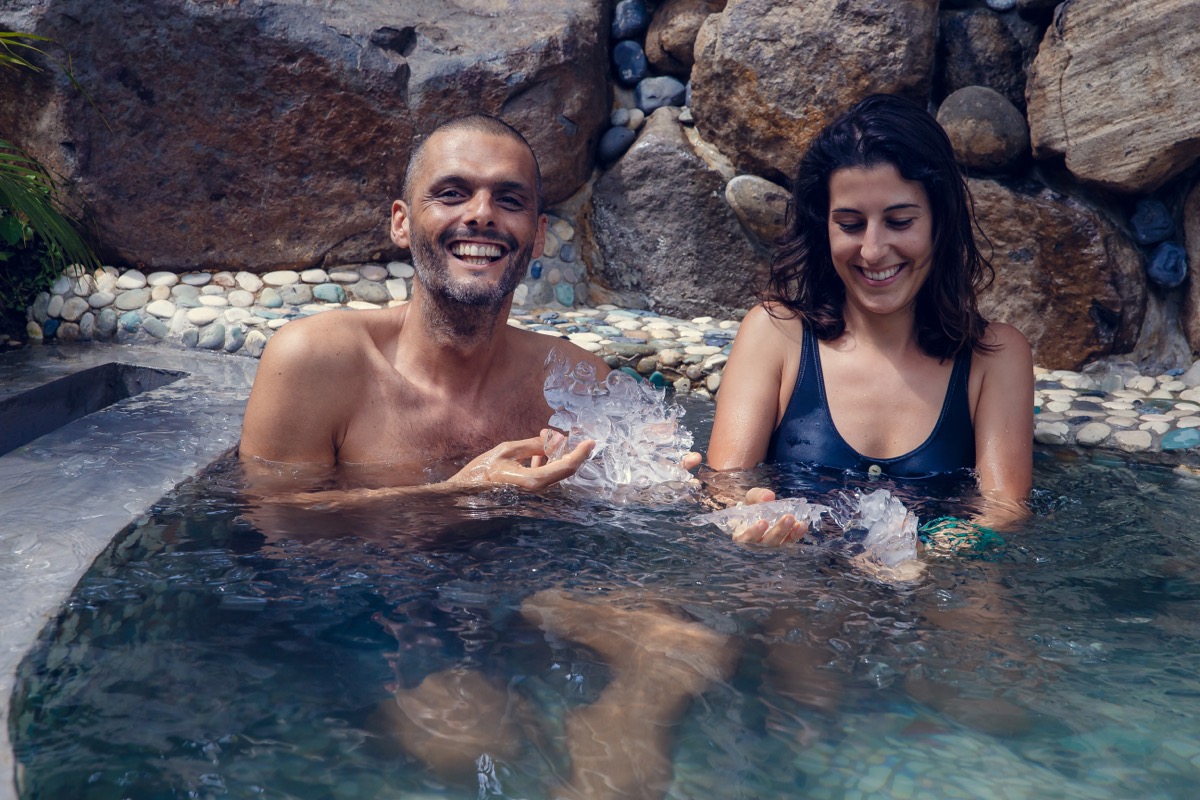
Cold water immersion may come with certain health benefits, but there’s inadequate evidence to say for sure that it’s worth its risks.
Before you try a cold plunge for yourself, you should always ask your doctor how it might affect you, given your unique health background. Even if you’re given the go-ahead, it’s also important to take precautions by building up your tolerance gradually and never plunging alone.
However, when done responsibly, emerging research suggests that cold water therapy could be a helpful biohacking tool, aiding in everything from post-workout muscle recovery to better insulin resistance.